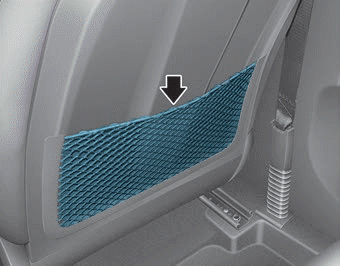Hyundai Ioniq: Exterior Care / Protecting your vehicle's finish
Washing
To help protect your vehicle’s finish from rust and deterioration, wash it thoroughly and frequently at least once a month with lukewarm or cold water.
If you use your vehicle for off-road driving, you should wash it after each off-road trip. Pay special attention to the removal of any accumulation of salt, dirt, mud, and other foreign materials. Make sure the drain holes in the lower edges of the doors and rocker panels are kept clear and clean.
Insects, tar, tree sap, bird droppings, industrial pollution and similar deposits can damage your vehicle’s finish if not removed immediately.
Even prompt washing with plain water may not completely remove all these deposits. A mild soap, safe for use on painted surfaces, should be used.
After washing, rinse the vehicle thoroughly with lukewarm or cold water. Do not allow soap to dry on the finish.
WARNING
After washing the vehicle, test the brakes while driving slowly to see if they have been affected by water before getting on the road. If braking performance is impaired, dry the brakes by applying them lightly while maintaining a slow forward speed.
NOTICE
- Do not use strong soap, chemical detergents or hot water, and do not wash the vehicle in direct sunlight or when the body of the vehicle is warm.
- Be careful when washing the side windows of your vehicle. Especially, with high-pressure water, water may leak through the windows and wet the interior.
- To prevent damage to the plastic parts, do not clean with chemical solvents or strong detergents.

NOTICE
- Water washing in the engine compartment including high pressure water washing may cause the failure of electrical circuits located in the engine compartment.
- Never allow water or other liquids to come in contact with electrical/electronic components inside the vehicle as this may damage them.
Waxing
A good coat of wax provides a barrier between your paint and environmental contamination.
Keeping a good coat of wax on your vehicle will help protect it.
Wax the vehicle when water will no longer bead on the paint.
Always wash and dry the vehicle before waxing. Use a good quality liquid or paste wax, and follow the manufacturer's instructions. Wax all metal trim to protect it and to maintain its luster.
Removing oil, tar, and similar materials with a spot remover will usually strip the wax from the finish. Be sure to re-wax these areas even if the rest of the vehicle does not yet need waxing.
NOTICE
- Wiping dust or dirt off the body with a dry cloth will scratch the finish.
- Do not use steel wool, abrasive cleaners, or strong detergents containing highly alkaline or caustic agents on chrome-plated or anodized aluminum parts. This may result in damage to the protective coating and cause discoloration or paint deterioration.
 Exterior Care
Exterior Care
Exterior general caution
It is very important to follow the label directions when using any chemical cleaner
or polish. Read all warning and caution statements that appear on the label...
 Repairing your vehicle’s finish, Bright-metal maintenance
Repairing your vehicle’s finish, Bright-metal maintenance
Repairing your vehicle’s finish
Deep scratches or stone chips in the painted surface must be repaired promptly.
Exposed metal will quickly rust and may develop into a major repair expense...
Other information:
Hyundai Ioniq (AE) 2017-2025 Owner's Manual: Refill inverter coolant, Stop vehicle and check brakes/ Stop vehicle and check regen. brakes
Refill inverter coolant This message is displayed when the inverter coolant is nearly empty. You should refill the inverter coolant. Stop vehicle and check brakes/ Stop vehicle and check regen. brakes Either message is displayed when a failure occurs in the brake system...
Hyundai Ioniq (AE) 2017-2025 Service Manual: Rear Glass Defogger Printed Heater. Repair procedures
Inspection • Wrap tin foil around the end of the voltmeter test lead to prevent damaging the heater line. Apply finger pressure on the tin foil, moving the tin foil along the grid line to check for open circuits...
Categories
- Manuals Home
- 1st Generation Ioniq Owners Manual
- 1st Generation Ioniq Service Manual
- Auto Door Lock/Unlock Features
- Temperature control
- Immobilizer System
- New on site
- Most important about car
Seatback pocket

The seatback pocket is provided on the back of the front passenger's seatback.
WARNING
To prevent the Occupant Classification System from malfunctioning:
